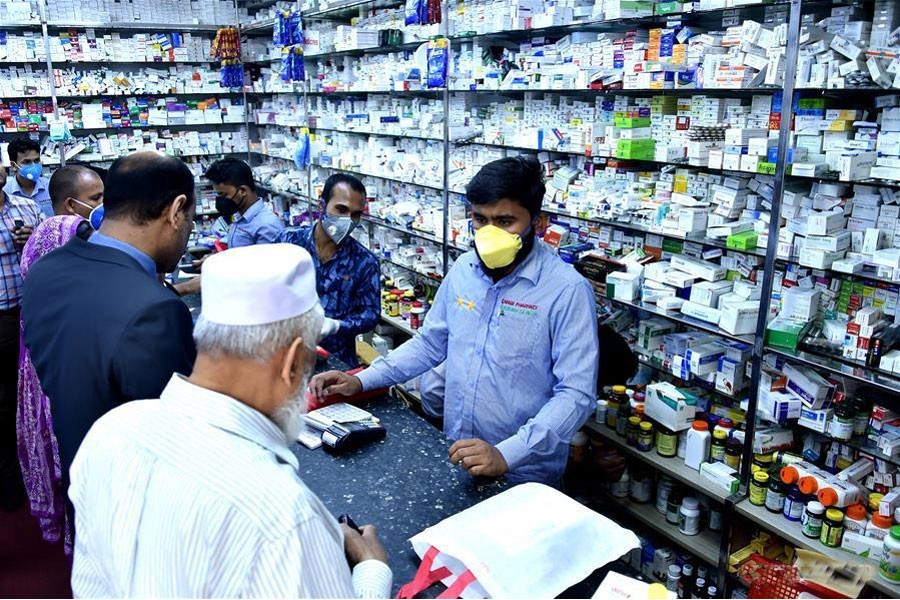Mushrooming of medicine shops passing for pharmacies across the country may appear to some as a quantitative improvement in related service to the public. But as most of the pharmacies lack the required trained staff, let alone pharmacists, to run them, they cannot, if anything, be touted as a service to the public. Worse yet, as it became obvious from an exclusive report carried by the Monday issue of this paper, an overwhelming number of these so-called dispensaries actually poses a threat to public health. Though there is no correct data with the Directorate General of Drug Administration (DGDA), it is believed, the actual number of such drug stores in operation may be at least twice as many as the registered.
Given that those holding DGDA registration number over one hundred fifty thousand, the magnitude of the problem hardly needs explaining. The obvious question that may arise is why should a large number of drug store be considered problematic? The problem is twofold. First, the Over-The-Counter (OTC) sale of, often unprescribed, drugs. Secondly, in most cases the untrained or little trained, owners or staffs at the counters of the retail drug stores lack the knowledge of and ethical issues related to the drugs they sell to the customers. In this context, the recently growing concern over unrestrained use of some drugs, antibiotics, for example, is an important case in point. True, some 39, out of the 1,300 generic drugs in the market, are authorised to be sold OTC. But, unfortunately, the medicine shops in question also sell non-OTC drugs in violation of the rules. What is further worrying is that spurious drug manufacturers market their illicit cargoes mostly through these unlicensed retail drugstores, especially, at the upazila and union parshad (UP) levels.
Unsurprisingly, the operators of those retail medicine shops lacking necessary orientation about their trade play into the hands of the fraudulent pharma companies and work as a conduit for the fake medicines in exchange for big profits. As this practice constitutes a mortal threat to public health, drug control authorities need to track down and bust the evil nexus behind this illicit retail medicine trade. At the same time, the drug regulatory regime, its monitoring mechanism, in particular, is required to be made foolproof and further strengthened by way of employing adequate manpower. Notably, the sudden rise in the number of retail drug shops is a pandemic-time phenomenon. Small wonder that jobless youths, especially, those who got unemployed had started these medicine stores. This is for the simple reason that it was among the few of the trades the government allowed to run during the pandemic. One should not be surprised if some of these new drugstore operators were without the required drug licences.
Under the circumstances, the licensing procedure for the trade should be made less costly as well as hassle-free. Though such measure should be equally applicable for all in this business, the authorities would do well to be rather promotional towards these Covid-time entrants in the trade. However, there is definitely no question about adopting iron-fisted policy to deal with the so-called amateurish but trainable druggists. The authorities need to consider the case of those who are engaged in retail medicine trade an alternative source of employment during the pandemic.


